Japanese skincare and cosmetic products have their own name in the world and every person from Western to Asian countries seems to love the consistency, texture, ingredients, application, and overall results of Japanese Beauty Products.
However, the situation has been somewhat different in the last few months when Japan decided to release the wastewater from the Fukushima nuclear plant into the sea. It infuriated the neighbors of Japan and raised concerns about the safety of Japanese beauty products worldwide.
With Koreans discouraging the release and the FDA banning Japanese products to Chinese showing a violent reaction, Japan had a lot to explain. Consequently, it confused the general public about the safety of Japanese beauty products.
If you are one of those wondering if you should use that SK-II essence you bought last month, or someone looking for a product to replace your Tatcha moisturizer, let us help you make a careful decision. We are going to address the concerns related to the safety and boycott of Japanese beauty products in this article.
So, let us get into it.
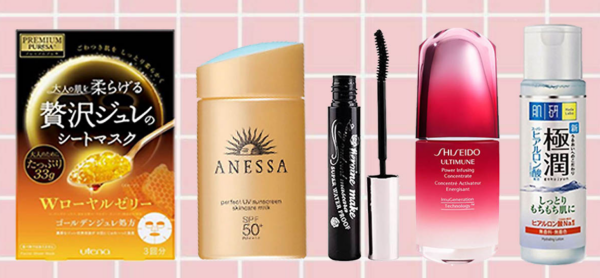
Table of Contents:
- Part 1: What are the Radioactive Concerns Related to Japanese Products and How Have They Originated?
- Part 2: What Does the FDA Say About Japanese Beauty Products Over Radioactive Concerns?
- Part 3: How Did China React to the Usage of Japanese Products After Release of Radioactive Waste in Water?
- Part 4: How Did Japan Brands and Government Respond to the Queries and Concerns Over Radioactive Release?
- Part 5: What are the Facts About Radioactive Waste Concerns According to Scientists?
- Part 6: Should You Boycott Japanese Beauty Products Over Radioactive Concerns?
- Part 7: How to Ensure That Products You Are Using Are Safe?
- Part 8: What Can You Use Instead of Japanese Beauty Products?
- Part 9: Conclusion
1. What are the Radioactive Concerns Related to Japanese Products and How Have They Originated?
The Nuclear Disaster in Japan
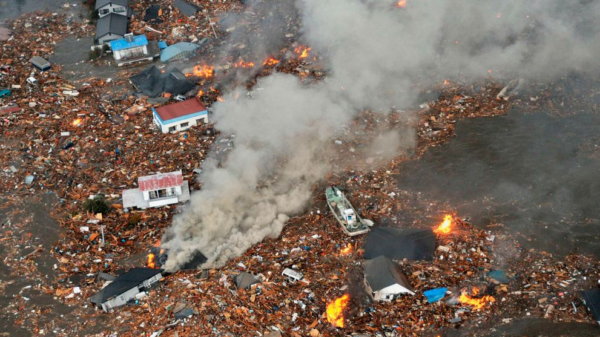 It all dates back to 2011 when a high-magnitude earthquake hit Oshikawa Penisula in Japan and also raised a Tsunami in Fukushima. The Fukushima Daichi nuclear power plant melted as a result of the power shutdown caused by the disaster.
It all dates back to 2011 when a high-magnitude earthquake hit Oshikawa Penisula in Japan and also raised a Tsunami in Fukushima. The Fukushima Daichi nuclear power plant melted as a result of the power shutdown caused by the disaster.
This shutdown led to uncontrolled nuclear reactions and the production of radioactive by-products.
The Treatment of the Wastes from the Disaster
Japan emptied an area of a 30km radius all around the power plant and stored the waste products there for more than a decade. During this time, Japan used its advanced liquid processing systems to treat radioactive waste in a way that the quantity of harmful material was greatly reduced.
2 years back the electric company that was in charge of dealing with the waste suggested releasing the wastewater from the treatment of radioactive waste into the sea.
Final Decision on Disposing the Waste
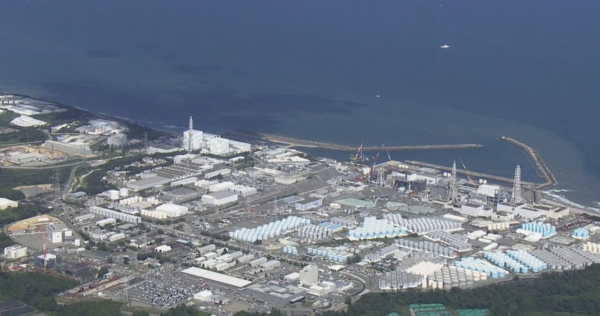 Then in 2023, the Japanese government decided to execute the suggestion of TEPCO after getting it cleared by health and safety firms around the world. Finally, in August 2023, this wastewater was released into the sea.
Then in 2023, the Japanese government decided to execute the suggestion of TEPCO after getting it cleared by health and safety firms around the world. Finally, in August 2023, this wastewater was released into the sea.
Start of the Concerns of Safety
The sea surrounding Japan is closely shared by China and Korea. These countries could not stay unbothered about the release. While Korea did not react severely, China has been banning food and cosmetic imports from Japan and raising international concerns about the safety of Japanese products.
Furthermore, you can read the details about the whole incident in Japan’s nuclear waste water scare.
2. What Does the FDA Say About Japanese Beauty Products Over Radioactive Concerns?
In early 2021, the FDA banned the import of Japanese products without any examination. However, later that year, the FDA estimated the safety of the Japanese products, and the quantity of harmful matter in the wastewater, and released a statement.
The statement says that the quantity of Tritium and other radioactive wastes in the Japanese was too low to cause any harm to health and they had no evidence to prove it otherwise.
After the release of the wastewater in 2023, the FDA again conducted a sample test of the products from Japan and concluded that not a single sample had cesium or a harmful concentration of tritium. This all has been explained in an official article by FDA [1].
3. How Did China React to the Usage of Japanese Products After Release of Radioactive Waste in Water?
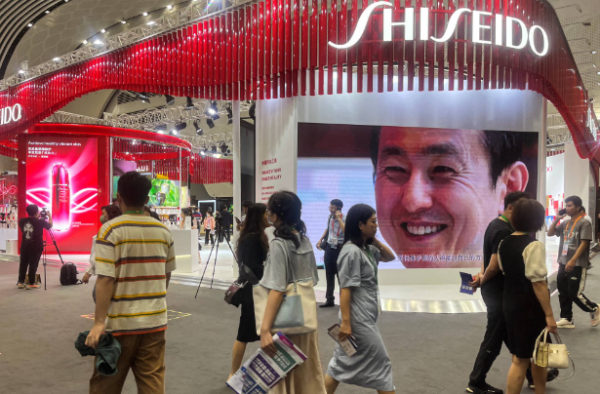 FDA is mainly focused on the products that are finding their way to America. However, China lies in the neighborhood of Japan and it did not take the safety issues lightly and showed an intense reaction. China Boycotted all products including beauty and food that were imported from Japan.
FDA is mainly focused on the products that are finding their way to America. However, China lies in the neighborhood of Japan and it did not take the safety issues lightly and showed an intense reaction. China Boycotted all products including beauty and food that were imported from Japan.
Additionally, Chinese people raised social media campaigns against Japanese brands, protested, and threw stones at the Japanese embassy showing their anger towards the wastewater issue and asking the government to stop the release. Even the Chinese president showed his disgust and denounced the release.
Japan’s beauty products had a huge market in China and sell of these products were banned. However, there is no scientific basis for this reaction of the Chinese government and it is mostly emotional making people withdraw from spending a large amount on Japanese Cosmetics. The silent enmity between the two countries could be another reason for this reaction.
4. How Did Japan Brands and Government Respond to the Queries and Concerns Over Radioactive Release?
Moreover, Chinese citizens prepared a list of the top Japanese brands they were doubtful about the use. These brands include Shiseido, SK-II, Tatcha, Annessa, Albion, Pola, and more.
So, the brands responded by explaining how all of their products are tested for safety and they have started radioactive testing to ensure that the safety of the products is not compromised.
Moreover, Japanese governmental authorities have explained the whole procedure of treatment of the products, the concentration of radioactive substances in the wastewater, and cleared of the wastewater release by The Internal Atomic Energy Agency.
A Japanese minister even had the fish captured from the sea water after wastewater release to illustrate the safety of the food as well as the products produced by using the seawater. These measures are somewhat enough to clarify the international concerns over radioactive release.
5. What are the Facts About Radioactive Waste Concerns According to Scientists?
Scientists and health firms from all over the world other than China collectively agree that the wastewater meets the safety standards of discharge and is completely safe [2].
Moreover, the chemical and radioactive composition of wastewater samples have been tested by the ministry. The results of testing show that this wastewater is free of almost all radioactive isotopes except a few like tritium. However, the concentration of tritium and other isotopes is too low to cause any harm [3].
Japan is not going to release all of the wastewater at once. Rather, it will continue to treat it, dilute it, and ultimately release it within the span of 30 years. In addition, the level of radiation emitted by tritium and carbon-14 is ineffective because of the dilution of water [4].
Lastly, the International Atomic Energy Agency worked for 2 years to assess the Japanese plan for the release of radioactive wastewater into the sea and they finally concluded that it met the safety standards and would have minimal to no effect on the water, air, or human life [5].
6. Should You Boycott Japanese Beauty Products Over Radioactive Concerns?
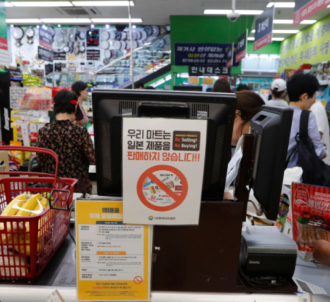 A simple answer would be “No”, you should not boycott Japanese beauty products over radioactive concerns. Because mainly China stirred up the controversy which is caused by incorrect and misinformation. Furthermore, it could be a political war as both countries have never been on friendly terms.
A simple answer would be “No”, you should not boycott Japanese beauty products over radioactive concerns. Because mainly China stirred up the controversy which is caused by incorrect and misinformation. Furthermore, it could be a political war as both countries have never been on friendly terms.
The Safety regulation firms from Japan, America, England, Korea, and several other countries have regarded this radioactive wastewater as safe after thorough testing and analysis. Additionally, the release of radioactive waste after treatment and dilution with ALPs is a common practice to get rid of by-products of nuclear reactions.
So, even if the waste produced through this incident is way more than the regular waste, Japan has taken measures to deal with it slowly ensuring the protection of the environment and life.
7. How to Ensure That Products You Are Using Are Safe?
The one thing you must do before buying any product is read its ingredients and pay attention to the miscellaneous ones. The miscellaneous ingredients can be harmful to your skin.
Additionally, some ingredients you regard as harmful might be completely safe to use as explained in harmful skincare ingredients to avoid in cosmetics. You can also check the reviews of well-known dermatologists about a skincare brand. This is a general rule for buying safe and effective products.
Regarding the radioactive waste issue, look at the brands that have explained the production process of their products, the origin of raw materials, and the presence/absence of usage of radioactive material.
Some of the brands have also started putting a “radioactive-free” label on their products to convince and relax their users.
8. What Can You Use Instead of Japanese Beauty Products?
If your heart forbids you to use these products even after all the safety regulations and explanations about the harmlessness of Japanese beauty products, you can take a break from Japanese brands and try some other products. So, you can read about the best natural cleanest makeup brands here.
Conclusion
The release of radioactive wastes in the ocean can be a serious issue if no precautions and measures are taken. However, Japan does not randomly release wastewater into the sea. Rather, it has cleared from the FDA and IAEA. and more.
So, water from the Japanese ocean, products made from it, and food are completely safe to consume. Lastly, you always have the option to try new products in case of persistent doubt about Japanese beauty products.

 By myulikeadmin
By myulikeadmin



